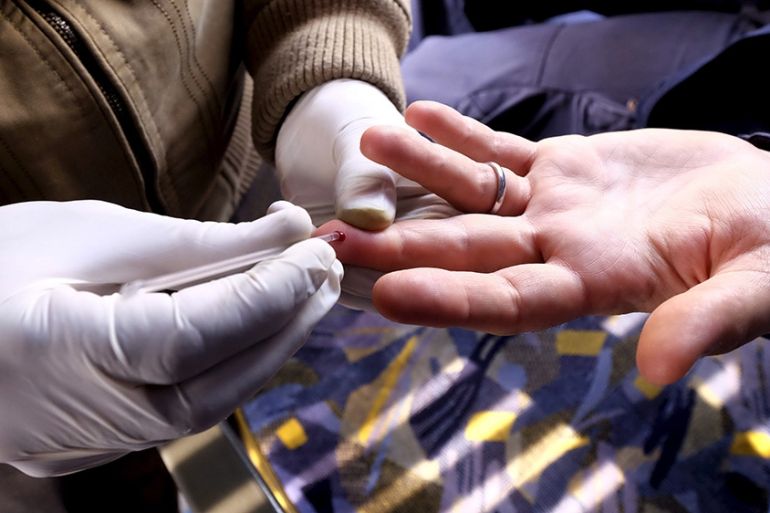Swiss launch channel to send food and medicine to Iran
Humanitarian goods are exempt from US sanctions, but fears of falling afoul of Washington have restricted flow to Iran.

Tens of millions of Iranians are grappling with the ravages of United States economic sanctions that have raised the price of food staples and led to shortages of medicines, including life-saving ones. But some token relief is heading their way.
On Thursday, a Swiss humanitarian channel to bring food and medicine to Iran kicked off trial operations, the US Department of the Treasury and the Swiss government said.
Keep reading
list of 3 itemsIran crypto developers launch platform for flood-victim aid
New US sanctions take aim at what’s left of Iran’s economy
The Swiss Humanitarian Trade Arrangement (SHTA) seeks to ensure that Swiss-based exporters and trading companies in the food, pharmaceutical and medical sectors can sell their products to Iran without landing in the crosshairs of the US Treasury.
SHTA gives firms that sell humanitarian goods a secure channel with a Swiss bank through which payments for their exports to Iran are guaranteed, the Swiss government said.
After President Donald Trump unilaterally withdrew the US from the Iran nuclear deal with world powers in 2018, Washington has hammered Iran with a “maximum pressure” campaign that has seen waves of sanctions imposed on the country’s oil and banking sectors, effectively isolating the country within the global economy.
Though life-sustaining goods such as food, medicine and medical devices are exempt from US sanctions, fear of falling afoul of Washington has made many banks wary of processing any financial transactions – including humanitarian ones – with the Islamic Republic.
The first transaction processed through the Swiss humanitarian channel – which has been under development since 2018 – involved exports of cancer and organ transplant drugs worth 2.3 million euros ($2.54m), according to the Swiss government.
The US Treasury said the new channel is “subject to strict due diligence measures to avoid misuse by the Iranian regime”.
“This Administration has full confidence that, together with our partners abroad, this mechanism will improve the flow of humanitarian goods to the Iranian people,” said US Treasury Secretary Steven Mnuchin in a statement on the US Treasury’s website. “Humanitarian transactions are currently allowed under our sanctions programs, and we encourage companies to use this humanitarian mechanism. We would like to thank the Swiss authorities for working with us.”
A report released in October by Human Rights Watch concluded that the consequences of US sanctions “whether intentional or not, pose a serious threat to Iranians’ right to health and access to essential medicines” and have “almost certainly contributed to documented shortages … ranging from a lack of critical drugs for epilepsy patients to limited chemotherapy medications for Iranians with cancer”.
After Iran suffered devastating floods last year that left an estimated two million people in need of humanitarian assistance, the Iranian Red Crescent Society said that US sanctions had impeded its relief efforts – including receiving foreign financial aid to help flood victims.